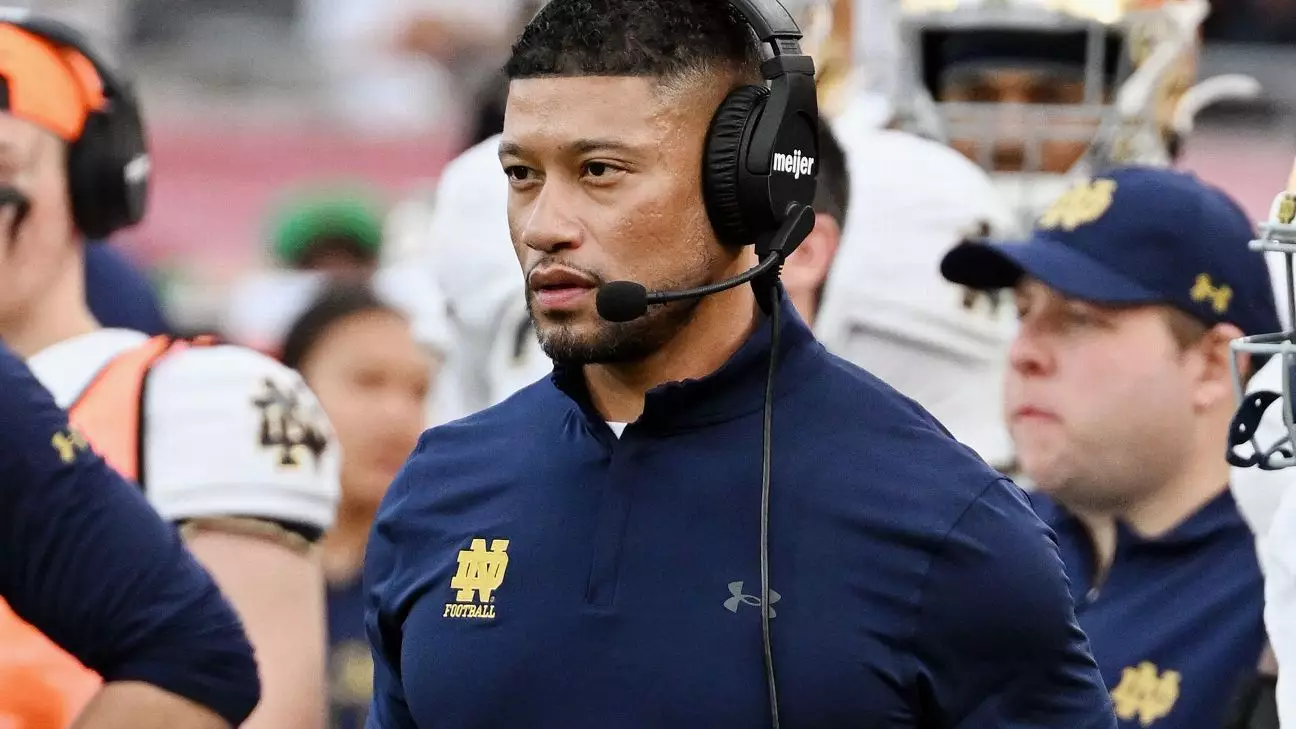As the anticipation builds for the College Football Playoff Semifinal at the Capital One Orange Bowl, the matchup between Notre Dame’s Marcus Freeman and Penn State’s James Franklin transcends the realm of sports. This game isn’t merely about athletic prowess—it represents a groundbreaking moment in collegiate athletics. Should either Freeman or Franklin emerge victorious, they will make history as the first Black head coach to lead a team to the national championship game. This impending milestone underscores the slow but steady progress in diversifying leadership roles within college football.
The significance of this moment hits home when we reflect on the previous milestone in professional football—the 2007 Super Bowl featuring Tony Dungy and Lovie Smith, the first African American head coaches to face off in the big game. Franklin recalls that moment, reflecting on how it marked a pivotal turning point in coaching and representation, not just in the NFL but in all of football. It illustrated the importance of visibility and the impact of having successful Black leaders in positions traditionally dominated by white coaches.
In discussing the representation of Black coaches in college football, Franklin pointed out the notable increase in the number of Black head coaches over the years—from six to 16. While skeptics may argue that this growth is modest in the context of 134 FBS programs, Franklin interprets it as an important step forward. “At the end of the day, does this create opportunities for more guys to get in front of athletic directors?” he mused, capturing the hopes of many aspiring coaches who seek their chance at the helm. The struggle for equitable opportunities in coaching has always been fraught with challenges; however, Franklin’s comments suggest that the conversation around diversity is not dying out but evolving.
Freeman’s acknowledgment of his own diverse background—being half-Korean—adds nuance to this discourse. His recognition that he serves as an inspiration to those who see themselves in his journey showcases the importance of representation in sports. He wisely emphasizes the broader notion of teamwork over individual accomplishment, reflecting an understanding that this moment extends beyond his personal aspirations. Such sentiments resonate deeply, particularly in a sport where cohesion and collective effort are paramount.
Both coaches recognize that their achievements are not solely about personal gain but rather about creating pathways for those who follow. Freeman articulated a genuine concern for mentoring and uplifting upcoming coaches. He believes that impacting the next generation requires proactive steps rather than passive acknowledgment. “If you want to truly help some people, then you got to be one to make decisions and actions that truly help people,” he asserted, which reveals a commitment to fostering change within the coaching landscape.
Franklin echoed similar sentiments, expressing pride in his role in motivating his players and being part of a historical narrative. His honor in representing Penn State in this crucial game signifies more than individual ambition; it reflects a commitment to uphold principles that benefit not just his athletes but the coaching community at large.
Going into the Capital One Orange Bowl, both Marcus Freeman and James Franklin stand at a crossroads where history meets the future. While their current focus is undoubtedly on the battle ahead, they are acutely aware of the weight of their responsibilities. They are not only vying for a national championship; they are also shaping the perceptions and opportunities for generations of coaches who aspire to follow in their footsteps.
This pivotal moment in college football is an opportunity for reflection and hope, serving as a reminder that every game has deeper narratives interwoven within its fabric. By spotlighting these two coaches’ journeys, we witness the potential for systemic change in a sport eager for progress. Regardless of the outcome on the field, the implications of their roles will echo far beyond the final whistle, resonating in locker rooms and coaching offices across the nation.

